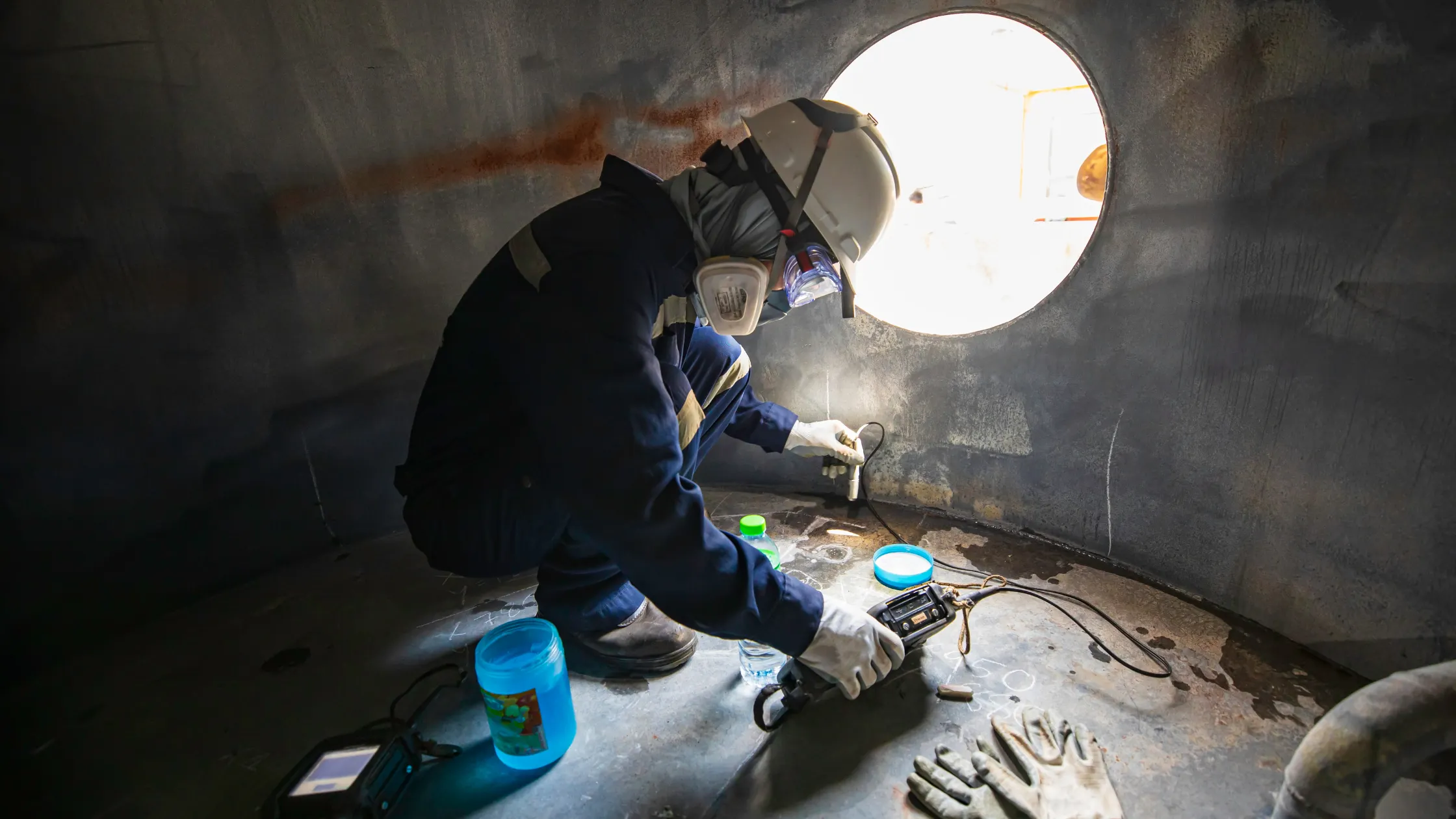Top 5 Common Vessel Inspection Failures (And How to Avoid Them)

In the maritime industry, vessel inspections are critical to ensuring safety, compliance, and operational efficiency. However, even the most experienced vessel operators can face common inspection failures. At AWP Marine Consultancy Ltd, we understand the importance of passing inspections and maintaining operational standards. Here’s a closer look at the top five inspection failures, why they happen, and how to prevent them.
1. Structural Integrity Issues
Common Problem:
Structural damage such as corrosion, cracks, or deformities in the hull and supporting structures can compromise the vessel's seaworthiness.
Why It Happens:
- Harsh marine environments lead to wear and tear over time.
- Poor maintenance or lack of routine checks can allow small issues to worsen.
How to Avoid It:
- Conduct regular hull inspections, including ultrasonic thickness gauging.
- Use corrosion-resistant coatings and implement a strict maintenance schedule.
- Engage professionals like AWP Marine Consultancy Ltd for unbiased structural assessments.
2. Fire Safety Non-Compliance
Common Problem:
Malfunctioning fire suppression systems, outdated extinguishers, or insufficient fire drills.
Why It Happens:
- Poor equipment maintenance.
- Failure to update fire safety protocols in line with regulations.
How to Avoid It:
- Schedule frequent inspections of firefighting equipment.
- Train the crew on fire safety procedures.
- Partner with a consultancy like AWP Marine Consultancy Ltd to ensure compliance with the latest fire safety standards.
3. Defective Navigation Equipment
Common Problem:
Faulty radar, GPS, or AIS systems that fail to meet operational requirements.
Why It Happens:
- Equipment aging and lack of routine testing.
- Electrical faults caused by improper wiring or environmental exposure.
How to Avoid It:
- Perform regular diagnostics and calibration of all navigation systems.
- Replace outdated technology with newer, more reliable alternatives.
- Seek professional audits from marine consultants to guarantee functionality.
4. Poor Maintenance of Machinery and Engines
Common Problem:
Engine malfunctions or failures to meet emissions standards during inspections.
Why It Happens:
- Irregular maintenance or use of substandard parts.
- Overloading machinery beyond its design limits.
How to Avoid It:
- Implement a rigorous planned maintenance system (PMS).
- Use high-quality, OEM-approved parts.
- Utilise consultancy services, such as AWP Marine Consultancy Ltd, to identify machinery issues before they escalate.
5. Safety Equipment Failures
Common Problem:
Life-saving appliances, such as lifeboats, life rafts, or emergency beacons, fail to operate properly during inspections.
Why It Happens:
- Lack of regular checks or improper storage conditions.
- Expired certifications or neglect of periodic servicing.
How to Avoid It:
- Schedule routine inspections and servicing of all life-saving equipment.
- Ensure proper training for crew members in the use of emergency gear.
- Work with professionals like AWP Marine Consultancy Ltd, who provide thorough, unbiased safety audits.
Why Choose AWP Marine Consultancy Ltd?
At AWP Marine Consultancy Ltd, we are committed to ensuring your vessels meet the highest safety and operational standards. Our team offers professional, unbiased assessments tailored to your unique needs, ensuring compliance with maritime regulations and industry best practices.
Conclusion
Inspection failures can lead to costly downtime, penalties, or, worse, endanger crew and cargo. By proactively addressing the common issues of structural integrity, fire safety, navigation equipment, machinery, and safety gear, you can safeguard your operations and ensure smooth sailing.
To learn more about how AWP Marine Consultancy Ltd can help keep your fleet inspection-ready, get in touch today for professional and reliable support.
